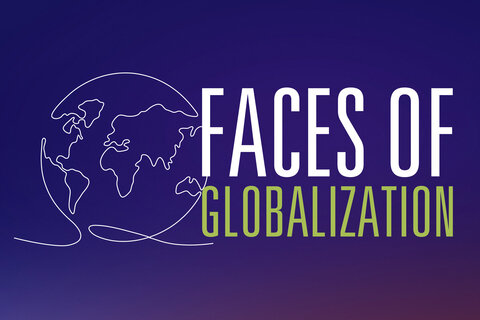Scott Lincicome
One of the main motivations behind Cato’s ongoing Defending Globalization project was that most public discussions of “globalization” miss what it actually is. When we hear the word, we typically think of things like container ships, wonky terms like trade deficit, or dry governmental agreements like NAFTA. Politicians and pundits, meanwhile, speak of “globalization” as some sort of artificial thing, created a few decades ago by “elites” in government, academia, and the corporate sector—a thing that hurts far more people than it helps, especially outside of places like Manhattan, Silicon Valley, or Washington, DC.
Yet little of this is correct. Instead, real globalization isn’t really a thing at all. It’s billions of humans freely cooperating for mutual gain in billions of ways, without direction from any one person, company, or government. It’s around us all the time; its benefits far outweigh its costs; and it’s been going on since the dawn of recorded history.
But this globalization is also mostly invisible, so most of us take it for granted, accept the conventional wisdom, and miss all the people whose daily lives are intertwined with, and often depend on the 21st-century global economy. We don’t see the faces behind the T‑shirts we buy, the faces behind the video games we play, or the faces behind the car we just bought. But they’re always there, and Cato’s new Faces of Globalization series wants to help you see some of them, in ways that challenge what many people think about trade, migration, and our daily lives.
Along with an introductory video on the docuseries, we’ve published today three on-location installments:
From Textile Town to Ghost Town to Car Town: West Point, Georgia. Tiny West Point was once an American “textile town” crippled by globalization. But today, the very same economic forces that challenged West Point decades ago are fueling its rebirth—and supporting the lives of thousands of American workers in the process. The region’s evolution shows that the global economy’s story doesn’t end after a disruptive event; it’s constantly changing—and usually for the better.
More Than Just a “Cheap T‑Shirt”: Guatemala Textiles. A common criticism of globalization is that its costs aren’t worth the “cheap T‑shirts” we get in return. But those shirts help American families stretch their budgets and serve as a lifeline for millions of the world’s poorest people. We traveled to an apparel factory in Guatemala to tell some of these people’s stories and to show how globalization has lifted more than a billion humans out of abject poverty since 2000.
Globalization for Fun and Profit: The Digital Gaming Economy. Digital trade is globalization’s hottest area today, and gaming is a huge part of that trend. Millions of people regularly compete, collaborate, and conduct business in massive virtual worlds that seamlessly cross international borders. They are the new, fresh faces of 21st-century globalization and part of an industry over three times the size of music and movies combined.
Each webpage above provides not only the full Faces video, but also related Defending Globalization content and a brand new “Dig Deeper” explainer on some of the key concepts covered in the film you’re watching. We hope you find the docuseries both entertaining and educational. Here’s a teaser of what you’ll find:
You can watch all of the Faces of Globalization videos here.


























